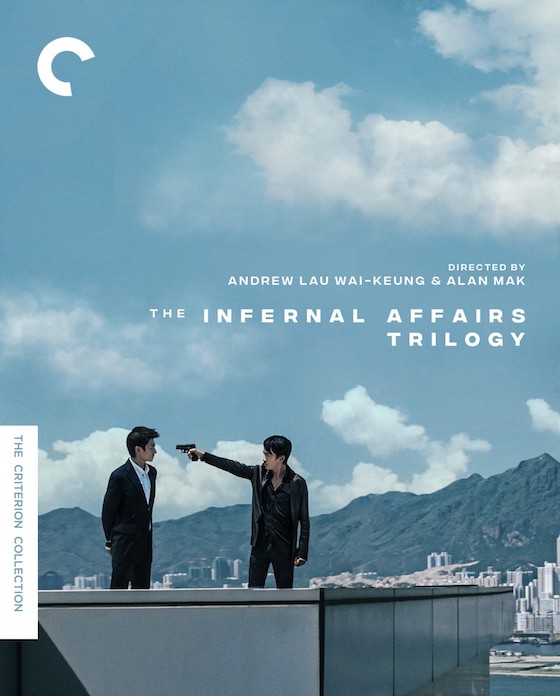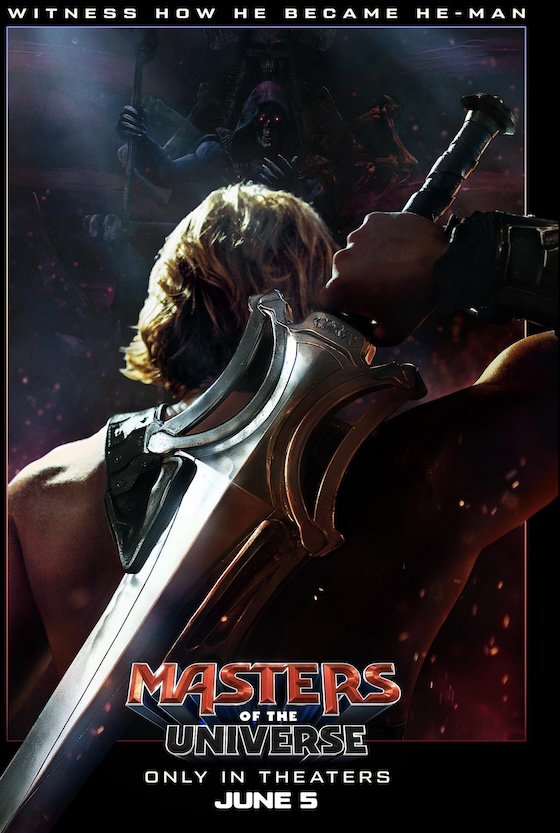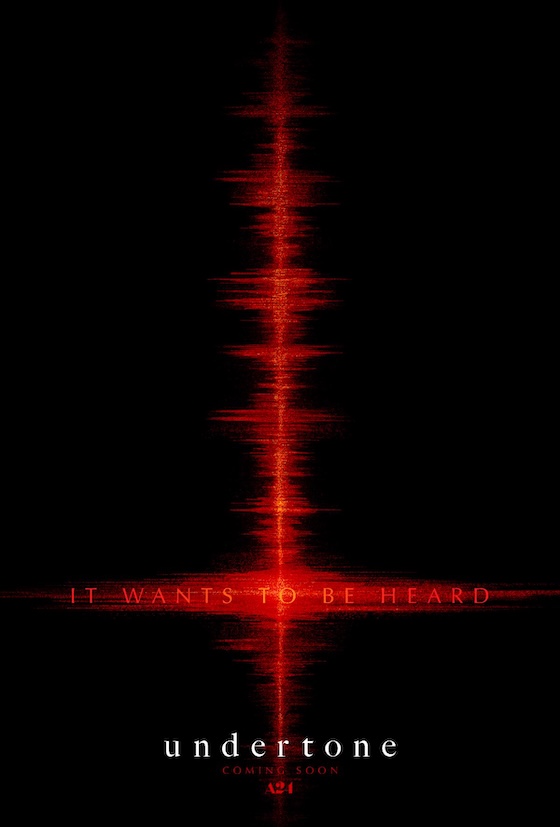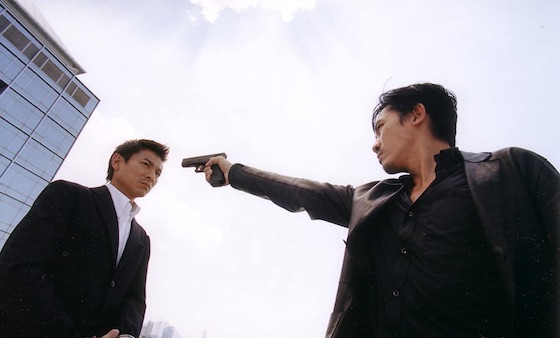
We’ll call them the classic, the prequel, and the sequel.
Breaking the mold of the cop/detective story that audiences of the time were all too familiar with, the writers (Felix Chong and Alan Mak) and directors (Alan Mak and Andrew Lau) of the iconic Infernal Affairs trilogy sought to inject new life into the genre by giving us tales dive into the cast of complicated characters that inhabit the perpetually clashing worlds of police and gangsters. All three films focus on the inextricable link between Triad spy, Inspector Lau Kin-ming (Andy Lau with Edison Chen as the young version) and undercover cop, Chan Wing-yan (Tony Leung with Shawn Yue as the young version) as they continually push their moral limits playing their respective mole roles (you’re welcome).
The classic. This one hooks you from the get-go. Hon Sam (Eric Tsang), a boisterous and slightly unpredictable Triad boss plants a teenage Lau into the police academy has his personal spy. But at the same time, a teenage Chan also attending the academy gets “kicked out.” In reality, he gets sent to a special academy to be trained as an undercover cop under the wing of Superintendent Wong Chi-shing (Anthony Wong). We fast forward ten years to see these two in action with Chan tipping off Wong during a attempted drug bust and Lau spoiling it by tipping off Sam to abort the deal. And once both sides come to realize they have moles, that’s when the film really takes off.
This first one is an absolute blast of tension that’s expertly written. Both sides are desperate to snuff out the respective snitches, but which snitch will get caught first? That is the key component of the plot that keeps it continuously engaging. However, what really makes this first installment great is the precedent that it sets for the whole trilogy. There is an ultimate importance of relying on the psychological consequences that both Lau and Chan suffer in this life as well as the complicated human relationships that form under these circumstances. There is some action, yes – great action that surprises you – but it does not rely on balls-to-the-wall action to make it interesting. No, it’s smarter than that. Like one of the director’s explained: they are thrillers, not action movies. And by doing this, there is unique spin on this genre that stands the test of time. It’s a great way to kick off this trilogy.
Now, on to the prequel. Infernal Affairs II dives even deeper into the complicated relationships between different gangs and its members, as well as the interesting relationship Inspector Wong has with gang informant, which, before he was at complete odds with him, was Sam. With all that we and the characters experience in the first film, this second installment pretty much serves as a “how we got here” film. Chen and Yue get their time to shine as young Lau and Chan, respectively, as we see a more detailed version of how they rose through their respective ranks. But what I think is the most interesting part is that more detailed and rather sympathetic looks we get into Wong and Sam’s relationship and their own internal issues they face within their circles.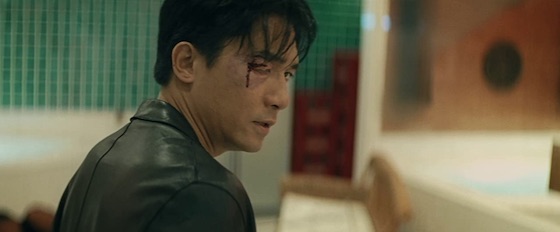
There is still a fantastic element of suspense within the plot, but motivations and emotions are what really take center stage even more so in this one. Greed, power, betrayal - it is a way more complicated story than the first film, especially with the introduction of a Triad boss that preceded Sam. His story and growth as a character is really fascinating! We see all the characters, good and bad, test their limits and cross their own moral lines. There is an overarching question of: What is the cost of this life? Sometimes it really is life or death. Also, when does one go too far? And more importantly: is it worth it? Everyone, and I mean, everyone reaches a point of no return. The first movie one really does push the envelope concerning morality, but this one, somehow, takes it even further. It is way more personal and expands on the personal costs every character must endure. And with that, I think, while the first one is probably the most beloved, I think that Infernal Affairs II is overall the most well-crafted out of the three in all aspects - writing, performance, tension, etc.
And lastly, we move to the sequel (it is also kind of a prequel, but just go with it). This third installment presents us with (spoiler alert) the aftermath of Chan’s death, as well as the months leading up to Chan’s death. But the key thing to focus on here is how Chan’s death takes its toll on Lau. When we see him in Infernal Affairs III, he is a very different person than when we saw him in the first movie. He’s lost his cool, suave demeanor that we are familiar with. Now, he’s broken. As briefly touched on in the previous films, Lau never really wanted this life – he was forced into it. Now, he wants to be good. But, with Chan’s death, Lau’s identity is under suspicion and he cannot focus. He’s consumed paranoia that his true identity will be found out and soon loses of control.
Out of all three of the films, Infernal Affairs III, I think really leans the most into the realm of psychological thriller through Lau’s deterioration. There is more experimentation with the visuals as we dive deeper into Lau’s psyche. He starts believing he is other people and he starts thinking other people are moles in his department, among other things. It is quite an interesting turn for this trilogy and quite impactful.
Overall, this is a classic trilogy that easily satisfies audiences of all types. At the trilogy’s core, it is all about humans and human nature, as well as the effects of corruption and obsession. There is a constant conversation that circles around the blurring of moral lines and what kind of danger that poses. And what I mentioned earlier that really makes this trilogy so stunning is the sparse use of violence. The filmmakers never resort to it unless it is absolutely necessary to the story. So, when it does show up, it makes a harsher and more meaningful impact with the stakes and tension climbing higher and higher.
There is not much more I can say about these films other than I think they are just superb. There is no doubt they are classics in not only Hong Kong cinema, but in world cinema. And all I can think about after viewing them is that maybe in another life Lau and Chan could have been friends, which I guess makes the movies even more heart breaking (in a good way).
And marking the 20th anniversary for the franchise that gave Hong Kong cinema a much-needed revamping, the Infernal Affairs trilogy has officially been inducted into the coveted Criterion Collection with gorgeous, director-approved, restorations for all three police thrillers.

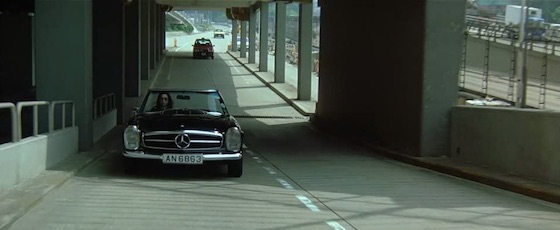

Digipack
Home Video Distributor: Criterion Collection
Available on Blu-ray - November 15, 2022
Screen Formats: 2.39:1
Subtitles: English
Audio: Cantonese: DTS-HD Master Audio 5.1
Discs: Blu-ray Disc; three disc set
Region Encoding: Locked to Region A
The Hong Kong crime drama was jolted to new life with the release of the Infernal Affairs trilogy, a bracing, explosively stylish critical and commercial triumph that introduced a dazzling level of narrative and thematic complexity to the genre with its gripping saga of two rival moles—played by superstars Tony Leung Chiu-wai and Andy Lau Tak-wah—who navigate slippery moral choices as they move between the intersecting territories of Hong Kong’s police force and its criminal underworld. Set during the uncertainty of the city-state’s handover from Britain to China and steeped in Buddhist philosophy, these ingeniously crafted tales of self-deception and betrayal mirror Hong Kong’s own fractured identity and the psychic schisms of life in a postcolonial purgatory.
Video
Presented in their original aspect ratio of 2.35:1, 4K restoration taken from the 35 mm original camera negatives look just as cool and crisp as how lead characters. There are no noticeable issues with the image quality and details, and the color is nicely balanced with a nice, cool blue tint adding to the sharp tone of the picture. Highlights and shadows all present well. No problems here.
Audio
With 5.1 surround DTS-HD Master Audio soundtracks that are included, there is a steady and clean audio throughout all three films with an impressive dynamic range that show off the highs and lows with ease. Overall, all dialogue, music, and sound effects come in nicely with these great tracks.
Supplements:
Interviews, commentary, documentaries, and more. This release is locked and loaded with an abundance of extras that film fans will absolutely relish in. Some seem to be from previously at-home releases but there is quite a bit of new footage to be seen. There is more than enough to enjoy.
Commentary:
- Audio commentaries for Infernal Affairs and Infernal Affairs II featuring codirectors Andrew Lau Wai-keung and Alan Mak and screenwriter Felix Chong Man-keung
Special Features:
- Alternate ending for Infernal Affairs
- New interview with Lau and Mak
- Archival interviews with Lau, Mak, Chong, and actors Andy Lau Tak-wah, Tony Leung Chiu-wai, Anthony Wong Chau-sang, Kelly Chen Wai-lam, Edison Chen Koon-hei, Eric Tsang Chi-wai, and Chapman To Man-chak
- Making-of programs
- Behind-the-scenes footage, deleted scenes, and outtakes
- TrailersPLUS: An essay by film critic Justin Chang
| Movie |  |
|
| Video | ||
| Audio | ||
| Extras | ||
|
Composite Blu-ray Grade
|
||
